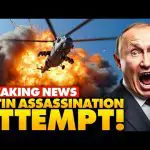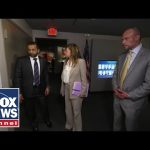NATO Ambassador Matt Whitaker recently tackled important discussions regarding national defense and international relations while reflecting on the sacrifices made by service members this Memorial Day weekend. During an interview, he addressed various topics that could impact both NATO allies and American citizens, particularly through his recent experiences in Dayton, Ohio.
With the NATO Parliamentary Assembly gathering crucial lawmakers from all 32 member countries, Whitaker emphasized the importance of defense spending agreements. He noted that these lawmakers have the power to decide how much each nation will commit to defense, which could be pivotal in maintaining peace worldwide. Whitaker was optimistic about the potential outcomes from the upcoming summit, expecting that increased funding for defense would both enhance military readiness and strengthen alliances.
One of the fundamental components of discussions surrounding NATO is the call for member nations to contribute a fair share to defense budgets. Whitaker highlighted former President Trump’s initiative for allies to aim for around 5% of their GDP by 2032, which includes traditional and nontraditional military expenditures. He expressed confidence that this objective was realistic, pointing out that it would not only fortify military capabilities but also bolster jobs at home, such as those in Ohio, where tanks are manufactured.
Shifting focus, Whitaker also brought attention to the ongoing war in Ukraine and the humanitarian crisis it has created. He noted the tragic reality of civilian casualties and the necessity for a ceasefire, a sentiment shared by former President Trump. The NATO Ambassador acknowledged that a prisoner exchange indicated that both sides were engaging in dialogue. However, he stressed that peace efforts must be genuine and tangible, requiring serious commitment from both Ukraine and Russia to end the violence.
In addition to NATO’s ongoing efforts, discussions regarding Iran’s nuclear ambitions drew attention. Whitaker reinforced the stance that Iran must not be allowed to develop nuclear weapons, highlighting the need for diplomacy to ensure global safety. He underscored that any agreement must be verifiable and enforceable, as trust is critical but must follow thorough scrutiny.
Lastly, the ongoing negotiations with China over trade tariffs signify another layer of international complexity. Whitaker articulated that America’s economy is a vital asset, and President Trump’s approach has brought China to the negotiation table. The Ambassador believes that the U.S. must ensure fair trade terms that benefit American businesses, particularly those reliant on exports. He was cautiously optimistic about finding resolutions that serve the interests of American workers while also acknowledging the interconnectedness of global markets.
In summary, Whitaker’s insights on NATO, defense spending, the Ukraine situation, Iranian nuclear talks, and U.S.-China trade relations provide a glimpse into the challenges and opportunities faced by American diplomacy. His commitment to fostering peace, leveraging military innovation, and advocating for fair trade exemplifies a hopeful outlook for the future of U.S. international relations.




